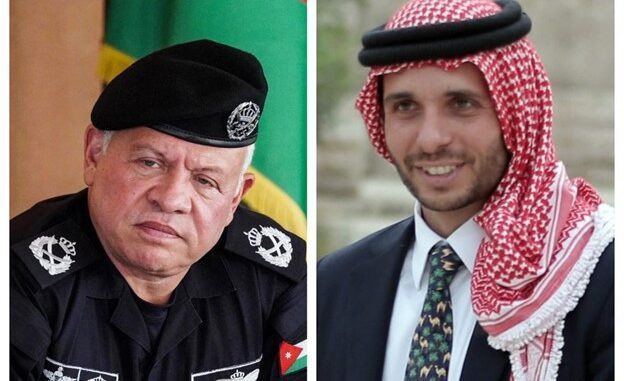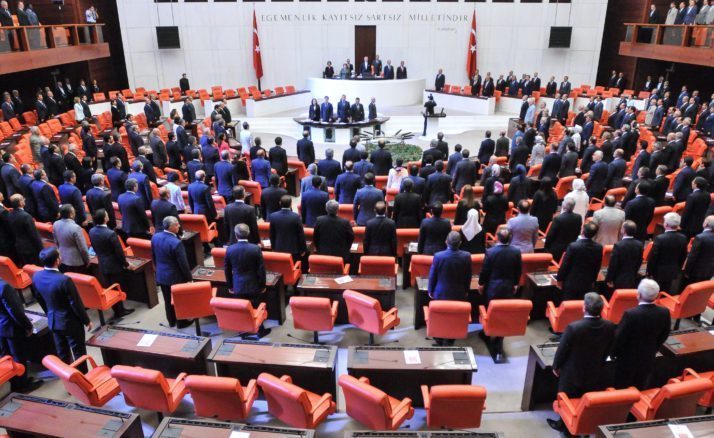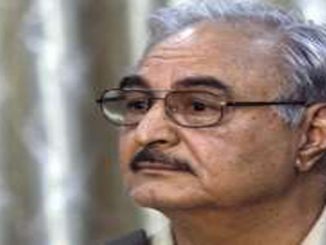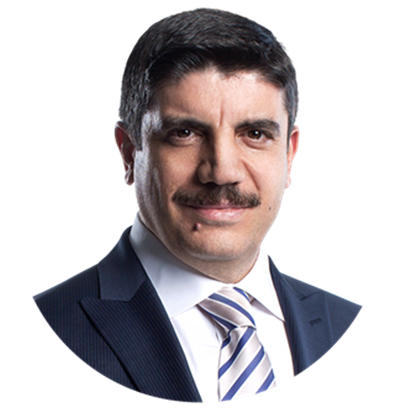
An alleged plot to unseat King Abdullah II of Jordan unfolded Saturday, unsettling the Hashemite Kingdom of Jordan. The alleged coup attempt found wide range Arab and American responses backing the Jordanian Monarch, which raises the question: who could be behind this alleged coup attempt?
Following what Jordan called a “threat to the country’s stability,” authorities said Saturday that they had arrested nearly 20 people and limited movement of former crown prince Hamzeh bin Hussein.
The Hashemite Kingdom of Jordan has been spared much of the political upheaval that’s rocked other capitals in the Middle East over the past decade.
But it has seen pro-democracy protest movements, been economically hurt by the coronavirus pandemic, and struggled to host more than 1 million refugees displaced by the war in neighboring Syria.
Nearly 20 arrested
Jordanian authorities have arrested as many as 20 people and sought to restrain the movement of a former crown prince amid what officials called a threat to the “security and stability” of a country long regarded as a vital U.S. ally in the Middle East.
Prince Hamzeh bin Hussein, the eldest son of the late King Hussein and his American-born fourth wife, Queen Noor, was told to remain at his Amman palace amid an investigation into an alleged plot to unseat his older half brother, King Abdullah II, according to a senior Middle Eastern intelligence official briefed on the events.The move followed the discovery of what officials described as a complex and far-reaching plot that included at least one other Jordanian royal as well as tribal leaders and members of the country’s political and security establishment. One official cited unspecified evidence of “foreign” backing for the plan.
Biden administration officials were briefed on the arrests, which come at a time of heightened economic and political tension in a country long regarded as a bulwark of stability and an essential partner in U.S.-led counterterrorism operations.
Additional arrests were expected, said the intelligence official, who, like others, spoke on the condition of anonymity, citing security sensitivities surrounding the law enforcement operation.
In a formal statement late Saturday, the Jordanian Armed Forces confirmed that multiple arrests had occurred and that Hamzeh had been “asked to cease all movements or activities that could be employed to target Jordan’s security and stability.” The statement said that the former crown prince had not been arrested but that “comprehensive investigations” were underway.
In a video statement late Saturday, Hamzeh denied wrongdoing and said the actions against him were an attempt to silence him for speaking out against corruption in Jordan. In the statement delivered to the BBC by his lawyer, he confirmed that he was “not allowed to go out, to communicate with people or to meet with them, because in the meetings that I had been present in — or on social media relating to visits that I had made — there had been criticism of the government or the king.”
“I am not the person responsible for the breakdown in governance, for the corruption, and for the incompetence that has been prevalent in our governing structure for the last 15 to 20 years, and has been getting worse by the year,” he said. Hamzeh, whose relations with Abdullah have been strained since his title was stripped from him in 2004, has sparred with his half brother frequently over the years, though mostly in private.
In Washington, State Department spokesman Ned Price said U.S. officials were closely following the reports and were in touch with Jordanian officials. “King Abdullah is a key partner of the United States, and he has our full support,” Price said.
Hamzeh served as Jordan’s crown prince for four years before the title was transferred to the current monarch’s eldest son, Hussein, in 2004. He has held multiple positions within the monarchy, including in the army, where he holds the rank of brigadier. He commands a loyal following in Amman and, with his trim mustache and checkered headdress, often styles himself after the late King Hussein, a revered figure in Jordan.
The prince was informed of the investigation by Jordanian military officers who arrived at his house with an escort of guards, as arrests were getting underway elsewhere, the intelligence official said. Hamzeh was told to refrain from travel and from posting on social media, the intelligence official said.
It was unclear how close the alleged plotters were to carrying out the supposed plan, or what, exactly, was intended. The intelligence official described the plan as “well-organized” and said some of the plotters appeared to have “foreign ties,” though he did not elaborate on that point.
The arrests of other officials were reported by Jordanian news outlets. Among them was Sharif Hasan, who also is a member of the royal family, and Bassem Awadullah, a former senior official in Jordan’s Royal Hashemite Court. An investment banker and CEO of Tomoh Advisory, a consultant firm based in Dubai, Awadullah had also served as special Jordanian representative to the Saudi government, and held Jordanian and Saudi passports, the intelligence official said.
In Israel, where news of the possible coup plot emerged at the end of the Passover holiday, officials had no immediate comment. But Israel, which has had a peace treaty with Jordan since 1994, considers stability in Amman as vital to Israel’s national interest. The two share Israel’s longest border, and Israel looks to Jordan to provide a buffer against threats from Iran.
“If this turns out to have been a serious attempt, it would be of a great deal of concern,” said Chuck Freilich, a former Israeli deputy national security adviser. “Israel takes the stability of the Hashemite Kingdom extremely seriously. They are a close security relationship.”
Jordan has been hit hard economically by the coronavirus pandemic as well as by the fallout from massive waves of refugees from Syria, its northern neighbor. Abdullah has ruled the country since King Hussein’s death in 1999, and cultivated close ties with a succession of U.S. presidents, while also clashing at times with U.S. officials over Palestinian peace initiatives. In recent years, he sparred with Trump administration officials over plans that would essentially bypass the Palestinians in seeking to redraw the boundaries of a future Palestinian state.
Under the king, the resource-poor kingdom of 10 million has been a major partner in the U.S.-led campaign against the Islamic State and has assisted U.S. forces in security operations around the globe.
Who is Jordan’s King Abdullah II?
King Abdullah II, 59, has led Jordan since 1999. His family, the Hashemites, trace their lineage back to the prophet Muhammad.
Abdullah is the oldest son of the revered late King Hussein of Jordan and his second wife, Princess Muna. Abdullah is the half brother of Hamzeh, who was detained as part of the alleged palace coup attempt.
Abdullah was educated abroad, including in England and the United States. He has also served in Jordan’s armed forces. He has four children with his wife Queen Rania, who is of Palestinian descent.
Abdullah has sought to cast Jordan as a moderate and stable regional force, and himself as a modern face of the country’s constitutional monarchy. Criticizing the king, however, is a crime in Jordan, while many other political rights and freedoms of expression are restricted.
In recent years, Abdullah has faced several waves of protests over economic issues, as well as calls for more political freedoms. So far, he’s successfully staved off these threats by reshuffling his government and making some political concessions.
What is Jordan’s modern history?
Jordan formally declared its independence from colonial British rule in 1946. Shortly afterward, Jordan joined in the fight against newly established Israel in the 1948 Arab-Israeli war. At the war’s conclusion, Jordan controlled East Jerusalem and the West Bank, and was home to many Palestinian refugees. Jordan then lost control of these territories to Israel in the 1967 war.
By some estimates, about half of Jordanians today are of Palestinian origin. The political system, however, has historically favored the country’s traditional tribes and rural populations, sometimes called East Bankers to distinguish them from originally West Bank Palestinians. (Some Palestinians in Jordan today have citizenship, while others do not.) Public sector jobs have also been dominated by Jordanians from tribal and rural backgrounds, while Palestinians have played a key role in developing the country’s private sector.
This tentative balance, however, has over the years been threatened by factors such as cuts to the public sector that have eroded the royal family’s traditional power base.
Why is Jordan a U.S. ally?
Jordan has cultivated close ties with a succession of U.S. presidents. It has also sought to maintain stable relations with its neighbors, including Israel. A peace treaty with Israel was signed in 1994.
During the Iraq War, Jordan was a key overland conduit to Iraq. It also hosted an influx of Iraqi refugees and served as a base for many international nongovernmental organizations. More recently, Jordan was a major partner in the U.S.-led campaign against the Islamic State and has assisted U.S. forces in security operations around the globe.
As a Sunni Muslim-majority country, Jordan has traditionally aligned with others in the region, such as Saudi Arabia and Egypt, and against Iran.
The Hashemite Kingdom is also keen to preserve its role as the custodian of holy Muslim and Christian sites in Jerusalem, including the al-Aqsa Mosque.
Who is Prince Hamzeh bin Hussein?
Hamzeh is the oldest son of the late King Hussein and Queen Noor, his American-born fourth wife. As of Saturday, he was reportedly at his Amman palace at the center of an investigation into the alleged plot to unseat his older half brother.
In a statement delivered to the BBC by his lawyer, the former crown prince denied the allegations and said he was being targeted for speaking out against corruption.
“I am not the person responsible for the breakdown in governance, for the corruption, and for the incompetence that has been prevalent in our governing structure for the last fifteen to twenty years, and has been getting worse by the year,” Hamzeh said in the statement.
Hamzeh served for four years as crown prince before the designation was passed on to Abdullah’s oldest son, Hussein, in 2004. Hamzeh is a well-known figure in the royal family. He has held other positions within the monarchy and holds the rank of brigadier in Jordan’s army.
US, Arab nations back King Abdullah II
Support for King Abdulla II comes as former Crown Prince Hamzah bin Hussein says he is under house arrest. There have been many responses from different countries and groups announcing backing of the Jordanian Monarch as follows:
United States: “We are closely following the reports and in touch with Jordanian officials. King Abdullah is a key partner of the United States, and he has our full support,” US State Department spokesman Ned Price said in an email.
Morocco: Morocco’s King Mohammed VI held a phone call with Jordan’s King Abdullah II to express solidarity and support for security measures taken by Jordanian’s authorities, Morocco’s royal palace said.
Oman: Oman completely stands by Jordan under the leadership of King Abdullah and firmly supports anything that preserves Jordan’s security, sovereignty and stability, the Foreign Ministry said in a statement.
Saudi Arabia: “The kingdom affirms its full support, with all its capabilities, to all decisions and measures taken by King Abdullah and His Highness Prince Al Hussein bin Abdullah II, the Crown Prince, to maintain security and stability,” said a statement from the Saudi royal court.
Egypt: Egypt voiced its support for Jordan’s King Abdullah and his efforts “to maintain the security and stability of the kingdom against any attempts to undermine it”, the spokesman for Egypt’s presidency wrote on Facebook.
Bahrain: “His Majesty King Hamad bin Isa Al Khalifa affirmed full support to the decisions and measures taken by HM King Abdulla II Ibn Al Hussein of Jordan to maintain his country’s security and stability and defuse all disruptive attempts,” state news agency BNA reported.
Gulf Cooperation Council: Gulf Cooperation Council “affirmed the full support of the Cooperation Council for all decisions and measures taken by His Majesty King Abdullah II bin Al Hussein, to preserve the security and stability of brotherly Jordan, wishing brotherly Jordan continued security and stability under the leadership of His Majesty King Abdullah II and His Highness, the faithful Crown Prince,” Secretary-General Nayef Falah Mubarak al-Hajraf said in a statement on GCC’s website.
Lebanon: “Jordan’s security and safety is a fundamental basis for the security and safety of the Arab world,” Lebanese Prime Minister-designate Saad al-Hariri said on Twitter. “All the solidarity with the Jordanian leadership and King Abdullah in defending the gains of the Jordanian people, protecting their stability, and refusing interference in their affairs.”
Kuwait: Kuwait’s foreign ministry expressed “its support to all the measures taken by Jordan’s King Abdullah and his Crown Prince Al Hussein bin Abdullah II, to maintain the security and stability of the kingdom,” adding that “the security and stability of the kingdom are that of Kuwait.”
Iraq: “The Iraqi government affirms that it stands with the Hashemite Kingdom of Jordan, under the leadership of His Majesty King Abdullah II, in any steps taken to preserve the security and stability of the country and take care of the interests of the brotherly people of Jordan, in a way that boosts their presence, by relying on measures that aims to extend the respect of the state,” the foreign ministry said in a statement.
Qatar: “Qatar expressed its full solidarity with the sisterly Hashemite Kingdom of Jordan and its full support to the decisions and measures issued by His Majesty King Abdullah to preserve the security, stability, and boost the process of progress and prosperity in the country,” state news agency QNA reported.
“Qatar affirmed that the security and stability of Jordan is an integral part of its security and stability, and stressed that the developed strategic relations between the two brotherly countries will remain an honest and strong guard against any attempts to undermine the security and stability in the two countries and the region.”
Yemen: Yemen’s internationally recognized government “affirms its absolute support and its complete stand with all measures aimed at preserving Jordan’s security,” state news agency Saba reported.
“Yemen affirms its absolute support and totally stands with all decisions and measures taken by His Majesty King Abdullah aimed at maintaining security and ending any attempts to destabilize the sisterly Kingdom of Jordan.”
Palestine: “Palestinian President Mahmoud Abbas said that we stand by the sisterly Hashemite Kingdom of Jordan, the king, the government, and the people,” official Palestinian news agency WAFA said in a statement.
“We support the decisions taken by King Abdullah II to preserve Jordan’s security and ensure its stability and unity.”
“We support the steps taken by King Abdullah to maintain Jordanian national security, stressing that Jordan’s security and stability is a supreme Palestinian interest,” he added.
Arab League: “The secretary-general of the Arab League expressed full solidarity with the measures taken by the Jordanian leadership to maintain the security of the kingdom and maintain the stability,” the Arab League said in a statement on its Facebook page, citing Ahmed Aboul Gheit.
“He also stressed his confidence in the leadership’s wisdom and its keenness to secure the country’s stability in parallel with the respect for the constitution and the law.”
“Ahmed Aboul Gheit added that King Abdullah II has a high and appreciated position, whether among the Jordanian people or on the Arab level in general, and that everyone knows his sincerity and his great role in serving Arab causes,” it added.
UAE: “UAE affirms its total support to the sisterly Hashemite Kingdom of Jordan. UAE affirms that it stands with and totally supports all the decisions and measures taken by King Abdullah II and his Crown Prince Al Hussein bin Abdullah II to maintain the security and stability of Jordan, and defuse every attempt to influence them,” state news agency WAM reported.
“UAE affirms that the security and stability of Jordan is an integral part of its security.”
Amid this unanimous backing of King Abdullah of Jordan, the question remains: Who could be behind the Jordan alleged coup attempt?



